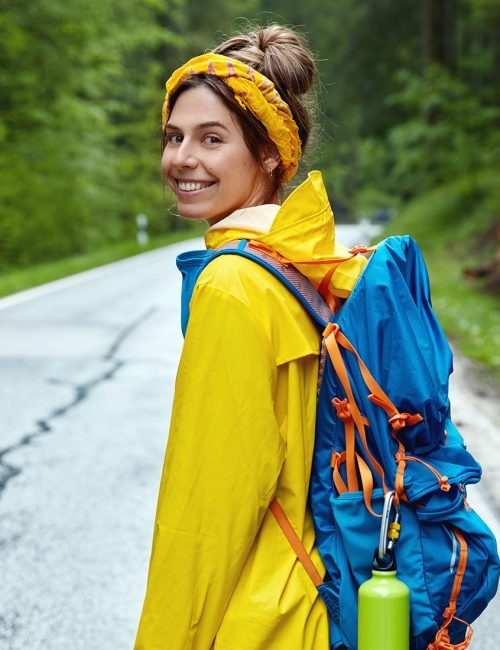Bartram Trail - Warwoman Dell to Chattooga River
Lenght:
18.8 miles
Estimated Time:
8-10 Hours
(287 reviews)
Type:
Point-to-point trail
Difficulty:
Hard
Elevation:
640 ft elevation gain total
Hours:
None Given
Emergency Contact:
(706) 754-6221
Address:
None Given
GPS Coordinates:
34.8765° N, 83.7234° W
Allowed Activates
- Hiking
- Trail Running
- Nature Photography
- Birdwatching
- Dog Walking (on leash)
- Backpacking
- Camping (dispersed)
- River Access
- Fishing
Amenities & Logistics
PARKING
- Free parking at Warwoman Dell Recreation Area
- Additional parking along Warwoman Road
- Russell Bridge parking area (southern terminus)
- Sandy Ford Road access (high-clearance vehicle recommended)
RESTROOMS & FACILITIES
- Restrooms temporarily unavailable at Warwoman Dell (check status)
- No facilities along remote trail sections
- Water sources require purification
- Carry all needed supplies
KID FRIENDLY
- Not suitable for young children due to length and remoteness
- Warwoman Dell area excellent for families with short trails
- River access may appeal to older children
- Educational opportunities about Native American history
PICNIC AREAS
- Two picnic shelters at Warwoman Dell
- Scattered picnic tables along recreation area
- No facilities along wilderness trail sections
- Primitive camping opportunities
FEES
- No entrance fees
- Free parking at all access points
Trail Overview
Following William Bartram’s historic 1775 route, this challenging section travels from the recreation area at Warwoman Dell to the pristine waters of the Wild and Scenic Chattooga River. The trail offers a true wilderness experience through some of Georgia’s most remote and biodiverse forest lands.
Departing Warwoman Dell’s lush valley, the trail climbs over Rainy Mountain (2,560 feet) before following pleasant ridgeline walking on old forest roads. The terrain alternates between moderate climbs and gentle descents, offering excellent opportunities to observe the region’s exceptional botanical diversity.
The route passes through various forest ecosystems, from dense hardwood coves to drier ridge-top environments. Wildlife sightings are common, including deer, wild turkey, and various bird species. The trail’s remote character means extended periods without encountering other hikers.
After crossing several mountain knobs and ridges, the trail descends to join the Chattooga River Trail at historic Sandy Ford. This ancient river crossing served Cherokee natives, early settlers, and traders for centuries. Archaeological evidence includes dugout canoes dating back over 200 years.

Key Highlights:
- Wild and Scenic Chattooga River access
- Rainy Mountain crossing
- Historic Sandy Ford
- Diverse forest ecosystems
- Wildlife viewing opportunities
- Pristine wilderness experience
Gear Up for Your Next Adventure
Every trail has its challenges. Make sure you’re prepared with gear that goes the distance.
Activity-Specific Information
For Hikers: Long wilderness section requires self-sufficiency. Multiple stream crossings and elevation changes. Allow full day or plan overnight camping.
For Backpackers: Dispersed camping available throughout. River access provides excellent camping opportunities. Water purification essential for stream sources.
For Photographers: Chattooga River access offers dramatic water photography. Forest diversity provides varied shooting opportunities. Historic Sandy Ford has cultural significance.
For Anglers: Chattooga River renowned for trout fishing. Native brook trout and stocked rainbows. Georgia fishing license required.
Water Access Information
River Conditions
- Chattooga Wild and Scenic River
- Sandy Ford historic crossing
- Multiple tributary streams
- Warwoman Creek access
WATER SAFETY
- River currents can be deceptively strong
- Water levels change rapidly with weather
- Cold water temperatures year-round
- Wear appropriate footwear for crossings
RECREATION NOTES
- Part of National Wild and Scenic River System
- Exceptional water quality
- Diverse aquatic ecosystems
- Leave No Trace principles essential
Safety & Preparation
Conditions: Trail generally in good condition with yellow blazing. River access requires careful navigation. Some overgrown sections in summer.
Recommended Gear: Sturdy hiking boots, insect repellent, water purification, camera, rain gear, river shoes for crossings.
What to Bring:
- 3+ liters of water plus purification
- Full day’s food supply
- First aid kit
- Navigation tools
- Insect protection
- River crossing footwear
Hazards/Warnings:
- Multiple creek crossings
- Potential tick exposure
- River currents can be strong
- Remote wilderness sections
- Weather changes affect river levels
Weather Considerations: Summer brings heavy vegetation and significant insect activity. Spring offers best water flow but challenging crossings. River levels rise quickly after rain.


